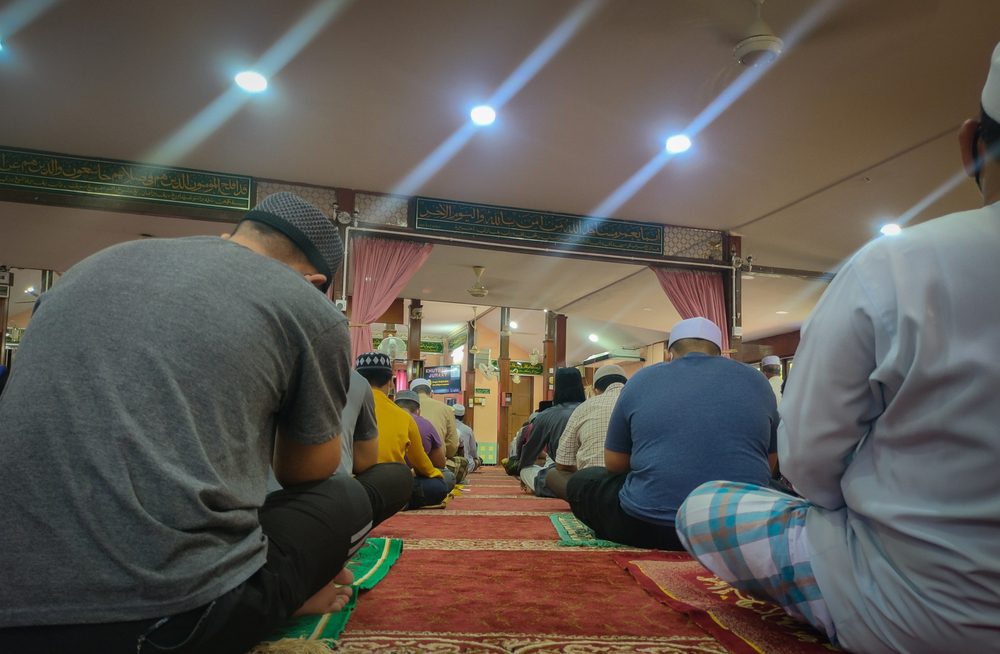
The French government’s claims of firmness in the face of militant Islamism now stand starkly refuted. Fundamentalist imam Hassan Iquioussen, served in July with an expulsion order by France’s interior ministry, should soon have his residency permit restored.
This Moroccan preacher was born in France where he has lived since birth. He resides near Valenciennes in the north of France, is married, and has five children and fifteen grandchildren. He has been accused by French authorities of having made anti-Semitic, homophobic, and sexist remarks in his public addresses. Famous for his preaching, he is known for having “trained” a whole generation in Islamist doxa through his harangues. Bernard Rougié, director of the Centre for Arab and Oriental Studies, stated in an interview with Le Figaro that
for the past twenty years, he [Iquioussen] has multiplied conferences in the mosques of northern France—the place where he was established—, in Île-de-France, and in Belgium, where, even more known than in France, he was regularly invited to Islamic institutes and amphitheatres in Brussels, including the very Catholic University of Saint-Louis.
Imam Hassan Iquioussen is an unavoidable figure for many radical Muslims in French-speaking countries. Bernard Rougié adds that “he gave his audience a strong community consciousness by politicising his religious affiliation.” Today, his sons are strongly involved in local politics in Denain, in the North of France, and intend to gain legitimacy through the ballot box. With them, Hassan Iquioussen’s objective is clearly to structure and strengthen a Muslim community vote.
The Islamist screeds which he had been repeating for twenty years fell under the jurisdiction of a French law that reinforces respect for republican principles—known as the law on separatism—which was voted upon and passed in August 2021. Under this law, the Islamist preacher was accused of “incitement to hatred.” Iquioussen had been labelled a “fiché S” (the French classification for dangerous radicalized people and potential terrorists) for 18 months, after which he was served with an expulsion order by the Ministry of the Interior. Although he was born in France, the imam had always stubbornly refused to acquire French nationality, leaving him vulnerable to deportation to Morocco, his family’s country of origin.
Minister of the Interior Gérald Darmanin had welcomed the legal firmness with which the Imam was treated.
Mon devoir est de protéger les Français. Ce monsieur n’a rien à faire sur notre sol : il tient des propos antisémites, il remet en cause l’égalité femme/homme, émet des doutes sur les attentats commis en France… pic.twitter.com/2jgaumCoMg
— Gérald DARMANIN (@GDarmanin) August 8, 2022
It was, however, a firmness that was quickly put to the test.
The news of his arrest and order for expulsion triggered a wave of indignation from a whole series of associations that denounced, since the vote on the 2021 law, a supposed “state Islamophobia” on the part of the French government. Moreover, given the imam’s popularity, no less than twenty mosques in the Hauts-de-France region, where he is based, signed a petition to show their solidarity with Iquioussen.
But far more sensational news came from the Paris administrative court. It got involved in the imam’s case and against all odds suspended the expulsion order on Friday, August 5th. Their justification: his expulsion “would cause a disproportionate attack on his private and family life.”
The sole reason drawn from the existence of acts of explicit and deliberate provocation to discrimination against women cannot justify the expulsion measure without causing a serious and manifestly disproportionate infringement of his right to lead a normal private and family life.
The court also condemned what they termed “conspiracy remarks” made against Imam Iquioussen, thus wrapping him in the mantle of victimhood.
An arm wrestling now begins. Gérald Darmanin immediately announced his intention to appeal the court’s decision before the supreme jurisdiction of the Council of State. In this case, his political credibility is at stake, as he has been outspoken in recent weeks about his intention to wage war on Islamism on French soil in all its forms—under the dubious gaze of the opposition from the Rassemblement National, which urges him to go further, and to strike harder.
In the case of Imam Iquioussen, Gérald Darmanin found an unexpected ally in the European Court of Human Rights, which ruled against the suspension of the expulsion on Thursday August 4th, just before the administrative court of Paris issued its own sentence.
